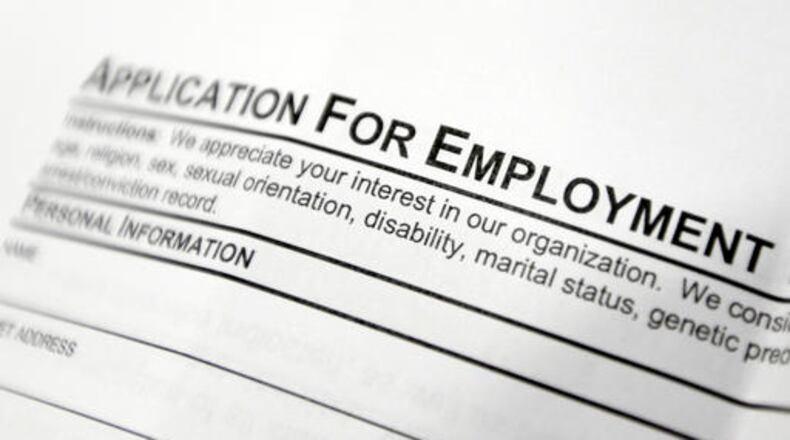To mark HBCU Week, Sept. 24-28, The Atlanta-Journal Constitution is running a series of guest columns that examine the role of historically Black colleges and universities and the challenges that face them. The White House is hosting the 2023 National HBCU Week Conference in Arlington, Virginia, this week with the theme of “Raising the Bar: Forging Excellence through Innovation & Leadership.” The AJC guest columns will also speak to those themes.
Today, Harry Williams, president and CEO of the Thurgood Marshall College Fund, discusses the U.S. Supreme Court’s rejection of affirmative action and the need for corporations to prioritize diversity in hiring and nurture Black talent. Williams began his tenure in January 2018.
The Thurgood Marshall College Fund represents publicly funded Black colleges and universities. There are three such schools in Georgia: Albany State, Fort Valley State and Savannah State universities.
By Harry Williams
The U.S. Supreme Court ruled earlier this summer to eviscerate affirmative action, effectively ending race-conscious admissions at colleges and universities. We have already seen states including Arkansas, Florida and Texas remove Black history from curricula and introduce legislation circumscribing what teachers can say about race and the United States’ history of structural racism.
With colleges like Texas A&M University removing lessons on “respect & inclusion” and the closures of collegiate diversity, equity and inclusion offices nationwide, there is rightful cause for concern that this dismantling of equal access protections will soon directly impact inclusive hiring practices in corporate America.
The storied career and trailblazing work of Thurgood Marshall, the pioneering civil rights lawyer and first Black Supreme Court justice, continues to be a beacon — even now, three decades after his death — to steer the principles, promises and practices of equal access to opportunity for all. Justice Marshall’s fight is as urgent as ever.
As the president and CEO of the Thurgood Marshall College Fund and someone who has benefited from the path Justice Marshall paved, I will continue to advocate and voice boldly the efforts to advance his legacy of inclusion and educational equity by creating avenues for corporate America to cultivate Black talent from our nation’s historically Black colleges and universities.
Credit: Contributed
Credit: Contributed
We saw in the California University System that the elimination of race-conscious admissions in 1996 propelled a 40% decline in enrollment among Black and Hispanic students at its most competitive public universities the year after it was implemented, according to some research. In the absence of federal protections, it is imperative we find innovative ways to reverse these trends and strengthen Justice Marshall’s legacy of creating an equitable society, ensuring future generations of Black Americans can access quality education and economic mobility, which positively impacts every member of society.
It’s challenging for employers to answer this moment on their own, but following Justice Marshall’s lead can help them chart a clear path forward.
Develop and maintain a diverse talent pipeline:
After studying 1,700 companies of varying sizes and in different countries, the Boston Consulting Group discovered companies with above-average diversity produced a more significant proportion of revenue from innovation (45%) than those with below-average diversity (26%), leading to stronger overall financial results.
Yet, the erasure of affirmative action discourages hiring managers and companies from consciously recruiting and retaining diverse talent. Additionally, a study from the National Bureau of Economic Research revealed hiring managers were three times more likely to hire someone with similar job experience to their own rather than someone with a different background or skill set.
Furthermore, among 108 of the Fortune 500 companies researched, applicants with “distinctly Black names” had a 2.1% less chance of being contacted for an interview compared to employees with “white” names. Without affirmative action, the gap for diverse talent will, undoubtedly, only grow wider.
Companies must evaluate hiring protocols to ensure they’re capable of attracting and identifying diverse applicants. It’s crucial to conduct targeted outreach, develop training, intern and mentorship programs to support diversity goals by ensuring candidates from all backgrounds feel welcome. This is a real challenge as, prior to the high court’s ruling, fewer than 25% of Black employees nationwide reported feeling included at the office, according to a report by Bain, a corporate consulting firm.
Increase organizational partnerships to reach under-tapped talent pools:
It’s essential to build relationships with organizations invested in expanding opportunities for historically underrepresented groups and communities. These include professional networks, nonprofits, community groups and educational alliances.
Beyond helping to connect with target communities, organizational partnerships can provide the validation necessary to build trust in corporations among underrepresented communities.
Invest in DEI for the long term:
Despite the gains in academic achievement, Black talent is navigating an atmosphere of uncertainty fueled by court decisions and limited representation in corporate leadership. Before the Supreme Court decision, only 5.9% of all chief executives in the country were Black, according to the Bureau of Labor Statistics, and no Black women CEOs led S&P 500 companies. Yet, Black Americans make up 13.6% of the population, so, to prevent a sense of disenchantment with corporate culture, companies must double down on their diversity, equity and inclusion commitments, not walk away from them.
Many of the commitments corporations and institutions made in the wake of the George Floyd murder to fight for diversity, equity and inclusion have fallen silent. It is more critical than ever we lead the charge to support the advancement of Black students and their opportunities to succeed in corporate America.
About the Author
The Latest
Featured




